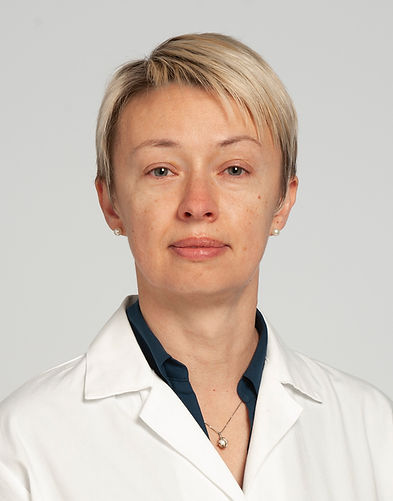
Collaborators

Bashoo Naziruddin
From Baylor Scott and White's website:
"Bashoo Naziruddin, PhD, has been the Director of the cGMP islet cell processing laboratory at Baylor University Medical Center since April 2003. He is also an Adjunct Associate Professor at the Institute of Biomedical Studies at Baylor University, Waco, Texas. Dr. Naziruddin’s current research is focused on the immunobiology of human islet cell transplantation. Specific research topics include assessment of immune response in islet transplant recipients, development of an optimal immunosuppressive regimen for islet transplantation, strategies to induce tolerance toward donor islets, identification of novel drugs to prevent islet rejection, and potential use of islets from pigs for transplantation into humans. He has published more than 113 research articles in peer-reviewed journals and has co-authored chapters in two books on organ transplantation and type 1 diabetes. He has also given more than 126 presentations at international/national scientific meetings and has delivered invited talks at reputed institutions."
Click here to visit his page on Baylor Scott and White's website.

Michael Lawrence
Baylor Scott and White
Michael Lawrence, PhD, is currently investigating mechanisms that regulate and affect pancreatic islet endocrine function in health and disease. Impairment or dysfunction of beta cells of the pancreatic islets leads to hyperglycemia and diabetes. He is identifying methods and approaches to prevent loss of pancreatic beta-cell function from metabolic and inflammatory stress to reverse and prevent diabetes. His current focus is on 1) protecting pancreatic beta cells from inflammatory and immune destruction in the pathogenesis of diabetes and in islet transplantation; 2) cell-mediated repair and restoration of islet function via pancreatic-derived mesenchymal stem cells; and 3) engineering islet endocrine tissue from islet precursor cells for islet cell transplantation. He also is actively involved in clinical islet cell isolation procedures for the islet cell transplant program at Baylor University Medical Center at Dallas

SangKon Oh
Mayo Clinic, Phoenix Arizona
https://www.mayo.edu/research/faculty/oh-sangkon-ph-d/bio-20436159
The overall research goal of the laboratory of SangKon Oh, Ph.D., is to understand how the innate immune system plays a decision-making role in orchestrating the strength, quality and persistence of antigen-specific T and B cell responses. This fundamental question can be addressed in the context of microbial infections, cancers and inflammatory diseases (including autoimmune diseases).
Dr. Oh's laboratory studies the biology of human dendritic cell subsets in both healthy and diseased tissues using an integrative biological approach. Researchers then harness this knowledge for the rational design of vaccines and therapeutics for microbial infections, cancers and inflammatory diseases, as well as for the prevention and treatment of transplantation rejection.

Emil Martin
UTHSC, Department of Internal Medicine
https://med.uth.edu/internalmedicine/faculty/emil-martin-phd/
The research efforts in Dr. Martin’s laboratory are directed toward understanding the biology of nitric oxide signaling. Current studies are focused on understanding the molecular mechanisms of biochemical regulation of soluble guanylyl cyclase, the receptor for nitric oxide, in vasculature. The main scope of these studies is to devise new or improve the existing approaches of NO-dependent and NO-independent pharmacological regulation of NO/cGMP signaling for therapeutic purposes.

Anna Valujskikh
Lerner Research Institute, Cleveland Clinic
https://www.lerner.ccf.org/immuno/valujskikh/
Immunologic memory is the ability of the immune system to respond rapidly and more efficiently to the previously encountered pathogens. While memory T cells are essential for host protection against infections, they can be harmful for life-saving organ transplants. Studies in laboratory animals and humans confirm that the high frequency of donor-reactive memory T cells prior to transplantation correlates with poor allograft outcome. The focus of our group is immunolobiology of memory CD4 T cells in general and the functions of donor-reactive memory CD4 T cells during allograft rejection in particular. We have previously demonstrated that memory CD4 T cells contribute to allograft rejection through multiple pathways. Such a redundancy of effector mechanisms makes controlling memory T cells in alloraft recipient a very challenging problem. Indeed, alloreactive memory T cells appear to be resistant to currently used graft-prolonging strategies including lymphoablation, immunosuppressive drugs and conventional costimulatory blockade. Our ultimate goal is to better understand the functions of graft-reactive memory CD4 T cells in the context of transplantation. This information should enable us to target various aspects of memory T cell response and promote rational development of combinatorial therapies for sensitized transplant recipients.
